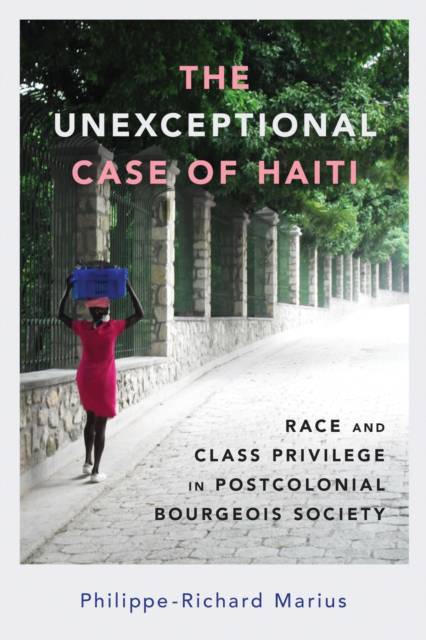
- Retrait gratuit dans votre magasin Club
- 7.000.000 titres dans notre catalogue
- Payer en toute sécurité
- Toujours un magasin près de chez vous
- Retrait gratuit dans votre magasin Club
- 7.000.0000 titres dans notre catalogue
- Payer en toute sécurité
- Toujours un magasin près de chez vous
The Unexceptional Case of Haiti
Race and Class Privilege in Postcolonial Bourgeois Society
Philippe-Richard Marius
39,45 €
+ 78 points
Format
Description
When Philippe-Richard Marius arrived in Port-au-Prince to begin fieldwork for this monograph, to him and to legions of people worldwide, Haiti was axiomatically the first Black Republic. Descendants of Africans did in fact create the Haitian nation-state on January 1, 1804, as the outcome of a slave uprising that defeated white supremacy in the French colony of Saint-Domingue. Haiti's Founding Founders, as colonial natives, were nonetheless to varying degrees Latinized subjects of the Atlantic. They envisioned freedom differently than the African-born former slaves, who sought to replicate African nonstate societies. Haiti's Founders indeed first defeated native Africans' armies before they defeated the French. Not surprisingly, problematic vestiges of colonialism carried over to the independent nation. Marius recasts the world-historical significance of the Saint-Domingue Revolution to investigate the twinned significance of color/race and class in the reproduction of privilege and inequality in contemporary Haiti. Through his ethnography, class emerges as the principal site of social organization among Haitians, notwithstanding the country's global prominence as a "Black Republic." It is class, and not color or race, that primarily produces distinctive Haitian socioeconomic formations. Marius interrogates Haitian Black nationalism without diminishing the colossal achievement of the enslaved people of Saint-Domingue in destroying slavery in the colony, then the Napoleonic army sent to restore it. Providing clarity on the uses of race, color, and nation in sociopolitical and economic organization in Haiti and other postcolonial bourgeois societies, Marius produces a provocative characterization of the Haitian nation-state that rejects the Black Republic paradigm.
Spécifications
Parties prenantes
- Auteur(s) :
- Editeur:
Contenu
- Nombre de pages :
- 256
- Langue:
- Anglais
- Collection :
Caractéristiques
- EAN:
- 9781496839084
- Date de parution :
- 19-04-22
- Format:
- Livre broché
- Format numérique:
- Trade paperback (VS)
- Dimensions :
- 152 mm x 229 mm
- Poids :
- 381 g

Les avis
Nous publions uniquement les avis qui respectent les conditions requises. Consultez nos conditions pour les avis.






